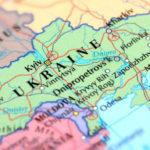
(NEW YORK) — The war in Ukraine is reshaping the global energy landscape and is expected to speed up the transition away from fossil fuels as countries scramble for alternatives to Russian energy, according to a new report from the International Energy Agency.
Russia has been one of the world’s largest exporters of fossil fuels like oil and natural gas, but Russia has cut off supplies of natural gas to Europe since they invaded Ukraine and sanctions on Russian exports have threatened energy supplies and increased prices all over the world.
The IEA report found that government’s responses to this energy crisis like the Inflation Reduction Act in the U.S. as well as clean energy packages in the European Union, Japan and Korea will bring down global demand from fossil fuels and accelerate the deployment of less emitting forms of energy like wind and solar. China and India have also set new goals to roll out more renewable energy.
“The government responses around the world given to this energy crisis promise to be that we are seeing a turning point in the history of energy and this crisis, indeed, accelerates clean energy transitions,” IEA Director Fatih Birol said at a press conference.
The report found that these policies will contribute to a peak in fossil fuel demand for the first time since the industrial revolution, with demand for natural gas expected to peak this century and increasing use of electric vehicles contributing to a peak in demand for oil in the 2030s.
“In this scenario, coal use falls back within the next few years, natural gas demand reaches a plateau by the end of the decade, and rising sales of electric vehicles (EVs) mean that oil demand levels off in the mid-2030s before ebbing slightly to mid-century,” the report said. “This means that total demand for fossil fuels declines steadily from the mid-2020s to 2050 by an annual average roughly equivalent to the lifetime output of a large oil field.”
United Nations climate reports have found that global greenhouse gas emissions from burning fossil fuels need to peak this century to limit warming to 1.5 degrees Celsius, the target set by the Paris Agreement to prevent more dangerous impacts of climate change.
The report expects that the short-term increases in demand for oil and coal burning to offset the lack of Russian gas are likely temporary and will be replaced by lower emissions sources of energy in the long-term.
“Energy markets and policies have changed as a result of Russia’s invasion of Ukraine, not just for the time being, but for decades to come,” IEA Executive Director Fatih Birol said in the press release. “Even with today’s policy settings, the energy world is shifting dramatically before our eyes. Government responses around the world promise to make this a historic and definitive turning point towards a cleaner, more affordable and more secure energy system.”
Copyright © 2022, ABC Audio. All rights reserved.
